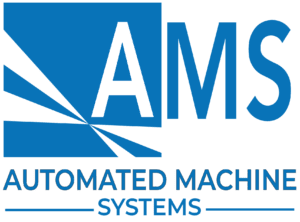
The Importance of a Project Champion at Manufacturing Automation Companies
The key to success in the world of manufacturing automation lies not only in the technology and processes we employ but also in the people who drive these initiatives forward. One critical role that often goes overlooked is that of the project champion. Today, we want to emphasize just how crucial this role is for the success of manufacturing automation companies like ours.
When customers ask us about the secret to automation, we gladly share our proven process, but what we need from them is often an internal dedicated project champion. Let me explain why.
Manufacturing Automation Companies and Internal Alignment
In manufacturing, we’ve seen how management turnover can make it exceedingly difficult for automation projects to succeed. Leadership changes can bring shifts in priorities and a lack of continuity in project vision.
This is where internal champions come in. They act as a bridge between the company’s vision and the project execution.
A project champion should intimately understand the internal environment, from the nuances of the business to operations, machining services, IT and the workers’ concerns on the shop floor.
Identifying the Right Project
Choosing the right project to automate is a crucial decision. It’s not just about automating for the sake of it; it’s about finding the processes that will benefit most from automation.
Internal champions are ideally positioned to help identify these areas. They know the ins and outs of the company, the bottlenecks and the pain points of systems like plastic assembly.
They can collaborate with the various departments to pinpoint the ideal project that will substantially impact productivity and efficiency.
Selling Automation Internally
Automation often faces resistance internally, especially from those who fear it is a job killer. This perception isn’t entirely accurate, but it’s one manufacturing automation companies hear about often.
Your internal champion plays a vital role in “selling” the idea of automation within your organization. They can articulate the benefits, showing how automation can enhance the skills of your workforce, open up new career opportunities and ultimately make the company more competitive in the market.
Setting Clear Expectations and Goals
As with any journey, the first step on the path to automation is determining where you’re headed. Set expectations and make them clear.
- What does your organization want to accomplish with automation, and what are the impacts?
- Is the goal to automate incrementally or on a large scale?
- How will automation affect workflow for engineering, planning and production?
Your internal champion can work with all stakeholders to ensure that these goals are not only defined but also attainable and measurable using the SMART (specific, measurable, attainable, relevant and time-bound) framework.
Managing Employee Perceptions
Understanding how employees perceive automation is vital. Many view it as a threat to their jobs. However, your internal champion can help change this perception by fostering an environment of education and support.
When employees realize that automation and manufacturing automation companies can enhance their skills and create new opportunities, resistance tends to wane.
Identifying and Supporting Automation Experts
Automation requires expertise, and your internal champion can help identify and support individuals within your organization who can become automation experts. These experts can be found in engineering, manufacturing and on the plant floor.
They play a crucial role in ensuring that the technology is utilized to its full potential, further advancing your company’s capabilities, whether it be medical, consumer or beyond.
Financial Implications of Automation
While cost savings are a significant driver of automation, it’s essential to recognize that true financial success lies in expanding your firm’s capabilities. Automation can reduce lead times, increase production and ultimately help bring in more revenue.
Your internal champion can work closely with your finance team to ensure that the financial implications of automation are thoroughly evaluated and that the investments made align with the company’s long-term goals.
Want to learn more about increasing your ROI? Take a look at one of our case studies.
Finding the Right Project Champion
In a nutshell, you must plan for automation. It won’t solve every problem all at once, but it can solve the right problems very well, and it can create often unanticipated opportunities for innovation, including additional career opportunities.
Making this happen requires focused and empowered program champions who work to achieve clearly defined goals, communicate clearly and conduct consistent, thorough reviews of the progress being made.
At AMS, we understand that automation is not just about machines and technology; it’s about the people who drive it. Whether you’re just starting your automation journey or looking to enhance existing projects, don’t underestimate the importance of having a dedicated project champion within your organization.
As you compare manufacturing automation companies, contact us or book a meeting to discuss organizational growth within your company. It’s a decision that can lead to transformative change and sustainable growth for your business.
